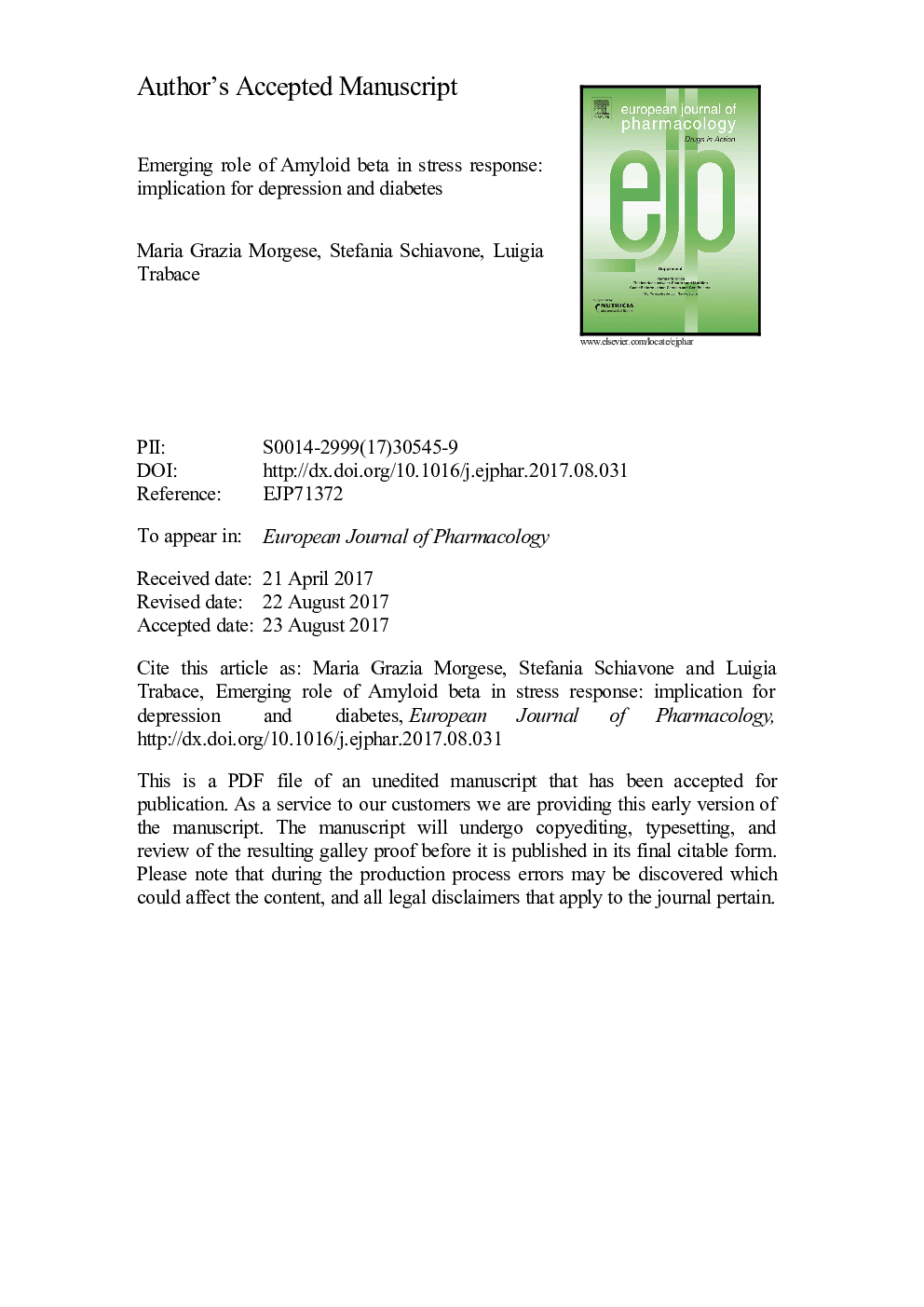| Article ID | Journal | Published Year | Pages | File Type |
|---|---|---|---|---|
| 8529727 | European Journal of Pharmacology | 2017 | 27 Pages |
Abstract
Chronic stress is considered a widely accepted risk factor for the development of neuropsychiatric and neurological disorders. Indeed, high cortisol levels, and, thus, hypothalamic pituitary adrenal (HPA)-axis dysregulation, have been indicated as the most frequent alteration in patients affected by depression, as well as by Alzheimer's disease (AD). Furthermore, depressive state has been pointed as an early manifestation of AD, advocating an overlap between these neuropathological events. We have previously demonstrated that central soluble beta amyloid 1-42 (Aβ) administration peptide induces a depressive like-behavior in rats, with altered HPA axis activation, reduced cortical serotonin and neurotrophin levels. The crucial role of Aβ in stress response is becoming more and more evident, indeed many reports indicate that its release is increased in stressful conditions and stress-based paradigm. Furthermore, it has been reported that stress controls Aβ production and/or clearance. Chronic stress is responsible of inducing neuroinflammation processes and reduced serotoninergic tone, both pathophysiological mechanisms proposed in the association of depression with another chronic disease, such as diabetes. Likewise, AD has also been indicated as type 3 diabetes, considering the large body of literature that suggests common biological bases. Thus, the main aim of the present review is to evaluate the most recent literature findings in humans and animal models in regard to the role of Aβ in stress response and in relation to the biological substrates and pathological pathways common to AD and comorbid diseases, such as depression and diabetes.
Related Topics
Life Sciences
Neuroscience
Cellular and Molecular Neuroscience
Authors
Maria Grazia Morgese, Stefania Schiavone, Luigia Trabace,
